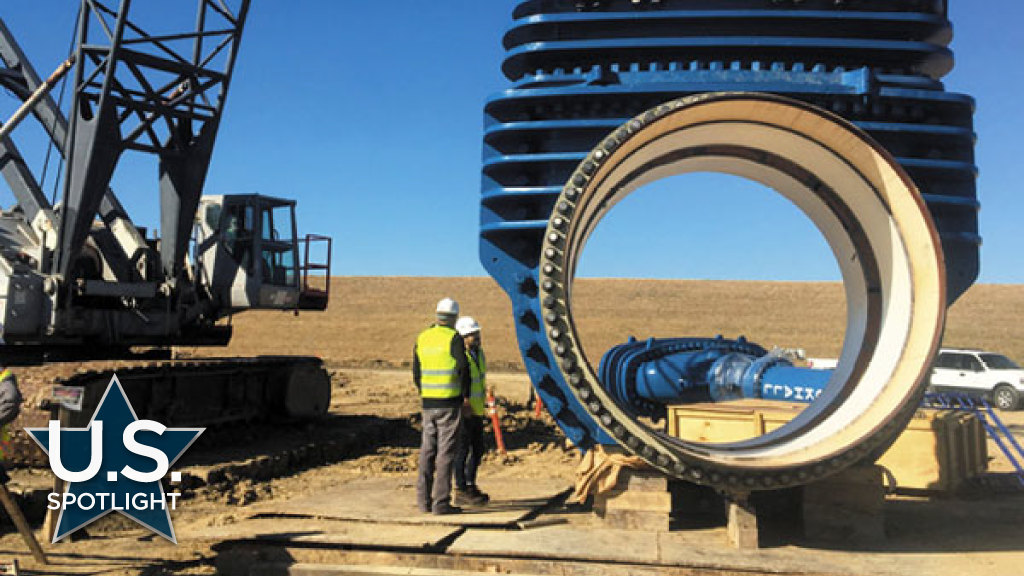Despite a somewhat shaky start to 2023, the latest job and economic growth data released in the June edition of the Texas Business Bulletin indicates a continued hot pace.
“Texas added more jobs than any other state over the last 12 months with a growth rate of 4 per cent (higher than the national rate of 2.6 per cet) and again set three new records for total jobs.”
The Texas work force now totals more than 14.9 million.
“Hot” is the operative word in more ways than one.
Climate change has brought higher temperatures in Texas that has accelerated reservoir evaporation and created arid conditions. That has reduced water volumes flowing into rivers and streams.
State data indicates reservoir storage was only about 67 per cent of capacity last October from a year earlier.
The 30 million people living in Texas cannot survive without water. The state’s rapid economic and population growth has put strain on existing water infrastructure.
Even before taking that growth into account, time has taken its toll on water infrastructure, particularly in rural areas. About 132 billion gallons of water were lost in 2021 through breaks, leakage and other causes, according to data submitted by public water suppliers to the Texas Water Development Board (TWDB).
Old leaky pipes not only waste water but can increase health risks due to contaminants like arsenic.
According to a Texas Tribune analysis of data from the Texas Commission on Environmental Quality, boil-water notices have increased 55 per cent from 2018 to 2022.
Patience is running thin among Texans. However, with a record budget surplus of $32.7 billion projected for 2023, help for the state’s water infrastructure appears to be on the way, at least in part. Senate Bill 28 was approved unanimously by the Texas State Senate in late May.
First sponsored by Senator Charles Perry and slightly expanded in scope by the House, Senate Bill 28 would see funding of $1 billion for the New Water Supply for Texas Fund. This could then be directed by the TWDB to a comprehensive list of water source and supply projects across the state.
Although $1 billion may likely be insufficient over the longer term, it’s not the only funding being made available. An additional $125 million of state funds will be used to unlock more than $750 million from the federal Infrastructure Investment and Jobs Act. That money could be used to remove water contamination and replace lead pipes.
However, Jeremy Mazur, a senior policy analyst for the nonpartisan advocacy group Texas 2036, believes the $1 billion approved is insufficient by a long way, saying the long term cost of fixing the state’s water infrastructure could hit $150 billion.
According to a fact sheet published in April by the Environmental Protection Agency (EPA), there are nearly 650,000 lead service lines in Texas that will need replacement, representing over seven per cent of the state’s total. The EPA estimates the replacement cost to be over $61 billion.
Safe water is an acute problem for less fortunate residents in Texas, such as the low income Latino communities called Colonias near the Texas-Mexico border. An estimated one-third of residents there didn’t have access to safe, clean drinking water as recently as 2015.
Water infrastructure is extremely expensive to build and maintain. Many smaller rural areas, where the state’s population expansion is increasingly occurring, have difficulty raising the necessary money. They look to the state for support.
In fact, the TWDB reports, “as of Feb, 28, 2023, the TWDB has made more than 5,795 financial commitments for a total of approximately $33.6 billion since the agency’s inception in 1957.”
However, the problem is that the board reportedly only approved $378 million in funding in 2022, despite requests from the Clean Water State Revolving Fund for $2.8 billion.
The new funding being proposed in Senate Bill 28 could be directed in many ways. Ideas include marine and brackish water desalination plants, aquifer storage, potable reuse projects, water loss mitigation projects and wastewater treatment for drinking water.
Those are concepts favoured by Senator Perry. As reported by local media, current TWDB planning that speaks of building new reservoirs, has been criticized by Perry as being too slow to meet immediate needs.
Representative Tracy King, who is piloting Senate Bill 28’s through the House, told the floor, “We are in dire need of significant financial investment in water infrastructure and water supply, without which, Texas will not continue to prosper. The immediate need addressed by this bill cannot be overstated.”










Recent Comments